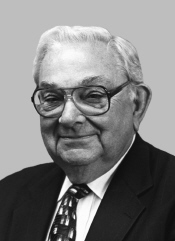A Quote by Wangechi Mutu
I have this amateur side attraction to, and interest in, the sciences and biology and physics and evolution. Paleontology is of interest to me. I'm interested in the way these fields have helped us understand how we are human and why we are human. I'm also from the area that is considered to be the cradle of mankind.
Related Quotes
In the past, destruction of your neighbour might have been considered a victory, but today we are all interdependent. We live in a global economy; we face problems like climate change that affect us all. The 7 billion human beings alive today belong to one human family. In the context that others' interests are in our interest and our interest is in their interest, the use of force is self-destructive.
In a large congregation, while there is a wide diversification of interest, it is also true that there are only a few basic human problems. It must also be taken into consideration that people are people regardless of who they are or what their backgrounds may be. There are certain deep universal appeals to human interest and to these human nature always responds.
I believe that the basic nature of human beings is gentle and compassionate. It is therefore in our own interest to encourage that nature, to make it live within us, to leave room for it to develop. If on the contrary we use violence, it is as if we voluntarily obstruct the positive side of human nature and prevent its evolution.
My interest as a writer is not in reflecting actual human speech, which, of course, does not occur in sentences and is totally undiagrammable. My interest is in trying to reflect the reality of experience - how we feel when we talk to each other, how we feel when we're engaging with questions that interest us.
We know from astronomy that the universe had a beginning, from physics that the future is both open and unpredictable, from geology and paleontology that the whole of life has been a process of change and transformation. From biology we know that our tissues are not impenetrable reservoirs of vital magic, but a stunning matrix of complex wonders, ultimately explicable in terms of biochemistry and molecular biology. With such knowledge we can see, perhaps for the first time, why a Creator would have allowed our species to be fashioned by the process of evolution.
A small knowledge of human nature will convince us, that, with far the greatest part of mankind, interest is the governing principle... Few men are capable of making a continual sacrifice of all views of private interest, or advantage, to the common good. It is vain to exclaim against the depravity of human nature on this account; the fact is so, the experience of every age and nation has proved it and we must in a great measure, change the constitution of man, before we can make it otherwise. No institution, not built on the presumptive truth of these maxims can succeed.
It is an odd fact of evolution that we are the only species on Earth capable of creating science and philosophy. There easily could have been another species with some scientific talent, say that of the average human ten-year-old, but not as much as adult humans have; or one that is better than us at physics but worse at biology; or one that is better than us at everything. If there were such creatures all around us, I think we would be more willing to concede that human scientific intelligence might be limited in certain respects.






































